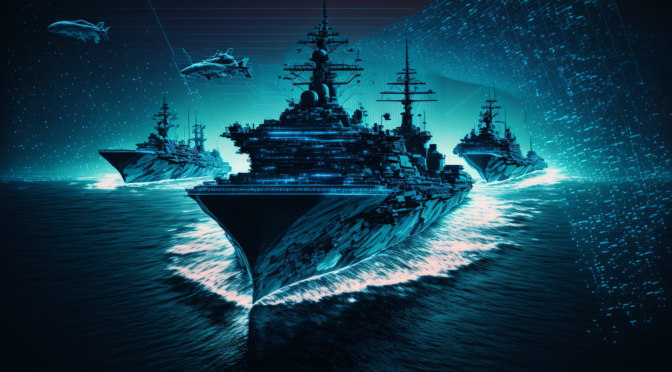Submissions Due: March 16, 2023
Topic Week Dates: March 27-31, 2023
Article Length: 1,000-3,000 words
Submit to: [email protected]
By Nicholas Romanow
The Fiscal Year 2023 National Defense Authorization Act (NDAA) ended the debate (for now) on whether the U.S. Navy needs a cadre of cyber officers. Section 1503 of the Act mandates that the Navy “establish and use” a cyber operations designator for officers and a cyber operations rating for enlisted personnel. It also prohibits members of existing information warfare designators from filling cyber-related billets and requires the Navy to submit a report to Congress in one year on the administration, training, and utilization of the Navy’s cyber personnel.
But the answer to this question opens up a range of new questions on cyber operations in the maritime domain. How should the Navy recruit, train, and retain cyber talent? What do cyber operations in a maritime environment look like? How will this investment in a Navy cyber community affect the Navy’s aviation, surface, subsurface, and special warfare communities? As the Navy develops this new cadre of talent, it needs to more deeply examine how it can leverage cyber in warfighting and peacetime operations.
Cyberspace is quite similar to the maritime environment. It is a domain wherein trillions of dollars of international commerce transits. It is not exclusively controlled by any single nation-state in particular. It is simultaneously a conduit for wealth and exchange yet also rife with peril and exploitation.
In theory, naval leaders should be in a prime position to understand the complex logic of cyberspace and tackle its dilemmas. Yet numerous other actors influence the maritime domain through cyber and depend on cyber for maritime access. What could be the risks of suffering malicious cyber effects on critical maritime infrastructure and platforms? How do maritime security and cybersecurity interact and depend on one another?
The Navy will finally have a specialist cyber cadre, but more remains to be done. As maritime and cyber connections grow and proliferate, these two domains will interact in complex ways to present advantage and threats across the spectrum of conflict. We invite authors to discuss these questions and more as we consider the future of Navy and maritime cyber. Send all submissions to [email protected].
Ensign Nicholas Romanow, U.S. Navy, is a graduate of the University of Texas at Austin. He is currently assigned to Fort Meade, Maryland, and working toward his qualification as a cryptologic warfare officer. He was previously an undergraduate fellow at the Clements Center for National Security. He is CIMSEC’s Social Media Coordinator.
The views presented are those of the author and do not necessarily represent the views of the Department of Defense, Department of the Navy, or any other military or government agency.
Featured Image: Artwork created with Midjourney AI.

